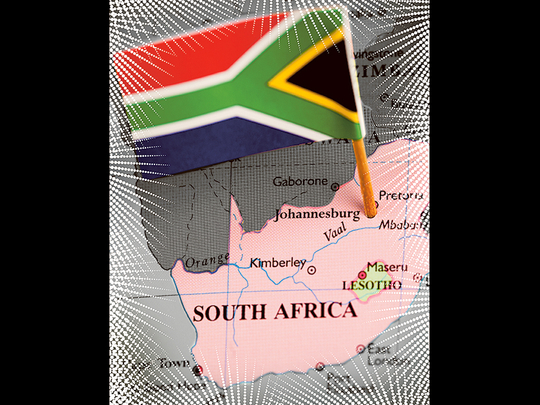
A paradox of sub-Saharan Africa’s rapid economic expansion is the fact that the region’s most sophisticated economy seems not to be part of it. Since 2008, South Africa has recorded average annual GDP growth of just 1.8 per cent, less than half the rate of the previous five years.
The International Monetary Fund expects output in the rest of sub-Saharan Africa to grow at a rate of close to 5 per cent next year, but South Africa is projected to manage little more than 1 per cent growth. More worrying still, the country’s unemployment rate — at over 25 per cent — is one of the highest in the world.
South Africa needs to reclaim the economic initiative, by — literally — building the Africa of the future. Countries across the continent are racing to construct the roads, ports, power stations, schools, and hospitals they will need to sustain their growth and meet the needs of their fast-growing and urbanising populations. And what they need most of all is expertise.
But while South Africa has highly capable architecture, construction, and engineering sectors, its current share of foreign-built projects in sub-Saharan Africa stands at only 7 per cent, compared to 32 per cent for China. According to the McKinsey Global Institute (MGI), a coordinated effort by South African construction firms, banks, financial institutions, and government ministries — in partnership with their counterparts in other African countries — could triple this share, potentially creating 80,000 new domestic jobs from exports of construction services by 2030.
The opportunities are not limited to the construction industry. South Africa has the know-how to meet Africa’s burgeoning need for a wide range of services, from banking and insurance to retail and transport. The country currently provides only 2 per cent of sub-Saharan Africa’s service imports — a market worth some $40 billion annually.
The contrast with other regions’ economic leaders is telling. Brazil provides 26 per cent of Latin America’s service imports, and the UK provides 19 per cent of Europe’s.
South Africa is home to several well-established, innovative banks that are well placed to offer low-cost, digital services to millions of currently unbanked African households and businesses. Indeed, South African banks already command a 12 per cent share of sub-Saharan Africa’s banking market (outside their home country); with the regional market growing by more than 10 per cent per year, they could nearly double this share by 2030.
The potential is just as promising in insurance. South Africa has a highly developed insurance sector, with a long history of creating products for every demographic and income level. It is ideally placed to provide insurance to the rest of sub-Saharan Africa, where just 1 per cent of households have insurance of any kind.
South Africa also has been punching below its weight in merchandise trade. It should be playing a much more active role both in meeting Africa’s demand for imports and in stimulating industrial and agricultural development across the continent. The recently announced Tripartite Free Trade Area, which will create an integrated market across 27 African countries, is a major opportunity for South Africa and the rest of the region.
That agreement could help South Africa triple its exports of agricultural goods. It could also bring products from other African countries into South Africa’s strong supply chains and trade networks, benefiting the entire region.
The key to reigniting South Africa’s economic growth is an ambitious regional strategy driven by government and business leaders working in partnership. A massive scale-up of vocational education is particularly important, as this will provide young South Africans with the technical skills needed to support the expansion of export industries.
Putting in place infrastructure to support growth — notably power generation, which currently lags demand — will also be crucial.
South Africa’s economic transformation since its transition to democracy two decades ago has been remarkable. But its renaissance is in danger of running out of steam.
Only by boldly seizing the initiative can South Africa put itself at the core of Africa’s economic renewal, and only by embracing its role as regional leader can it revitalise its own prospects.
Project Syndicate, 2015
Acha Leke is a director of McKinsey & Company and leads the McKinsey Global Institute in Africa. Michael Katz, Chairman of ENSafrica, one of Africa’s largest law firms, served as Chair of the Tax Advisory Committee to the Minister of Finance of South Africa.












